[A] : Senescence occurs in all non meristematic cells.
[B]: Meristems are potentially immortal.
If both Assetion and Reason are true and the Reason is a correct explanation of the Assertion
If both Assertion and Reason are true but Reason is not a correct explanation of the Assertion
If Assertion is true but the Reason is false
If both Assertion and Reaon are false
The correct Answer is:A
Step by step video, text & image solution for [A] : Senescence occurs in all non meristematic cells. [B]: Meristems are potentially immortal. by Biology experts to help you in doubts & scoring excellent marks in Class 11 exams.
Updated on:21/07/2023Topper's Solved these Questions
- PLANT GROWTH AND DEVELOPMENTBOOK - PRADEEPCHAPTER - PLANT GROWTH AND DEVELOPMENTEXERCISE - Practice Questions (Multiple choice questions)
59 Videos
- NEURAL CONTROL AND CORRDINATIONBOOK - PRADEEPCHAPTER - NEURAL CONTROL AND CORRDINATIONEXERCISE - Practive Question (Assertion-Reason Type Question)
17 Videos
- PLANT KINGDOM BOOK - PRADEEPCHAPTER - PLANT KINGDOM EXERCISE - Assertion-Reason Type Question
1 Videos
Similar Questions
Knowledge Check
[A] : Senescence occurs in all non meristematic cells.
[B]: Meristems are potentially immortal.AIf both Assetion and Reason are true and the Reason is a correct explanation of the AssertionBIf both Assertion and Reason are true but Reason is not a correct explanation of the AssertionCIf Assertion is true but the Reason is falseDIf both Assertion and Reaon are falseAll the given properties are found in the meristematic cell except
AIt shows the ability to actively divide .BVacuole is vary large and maybe more than one .CIt shows prominent nucleus and abundant cytoplasm .DMeristematic cell has a thin cell wall of cellulose.All statements given are exclusive characters of meristematic cells, except
ADense protoplasm and absence of vacuolesBIsodiametric shape with no intercellular spacesCColourless proplastids and a bigger nucleusDMetabolically less active or inert with a thin cellulosic wall
Which type of cell division occurs in meristematic cell of root apex?
View Solution(a) Find the potential difference between A and B
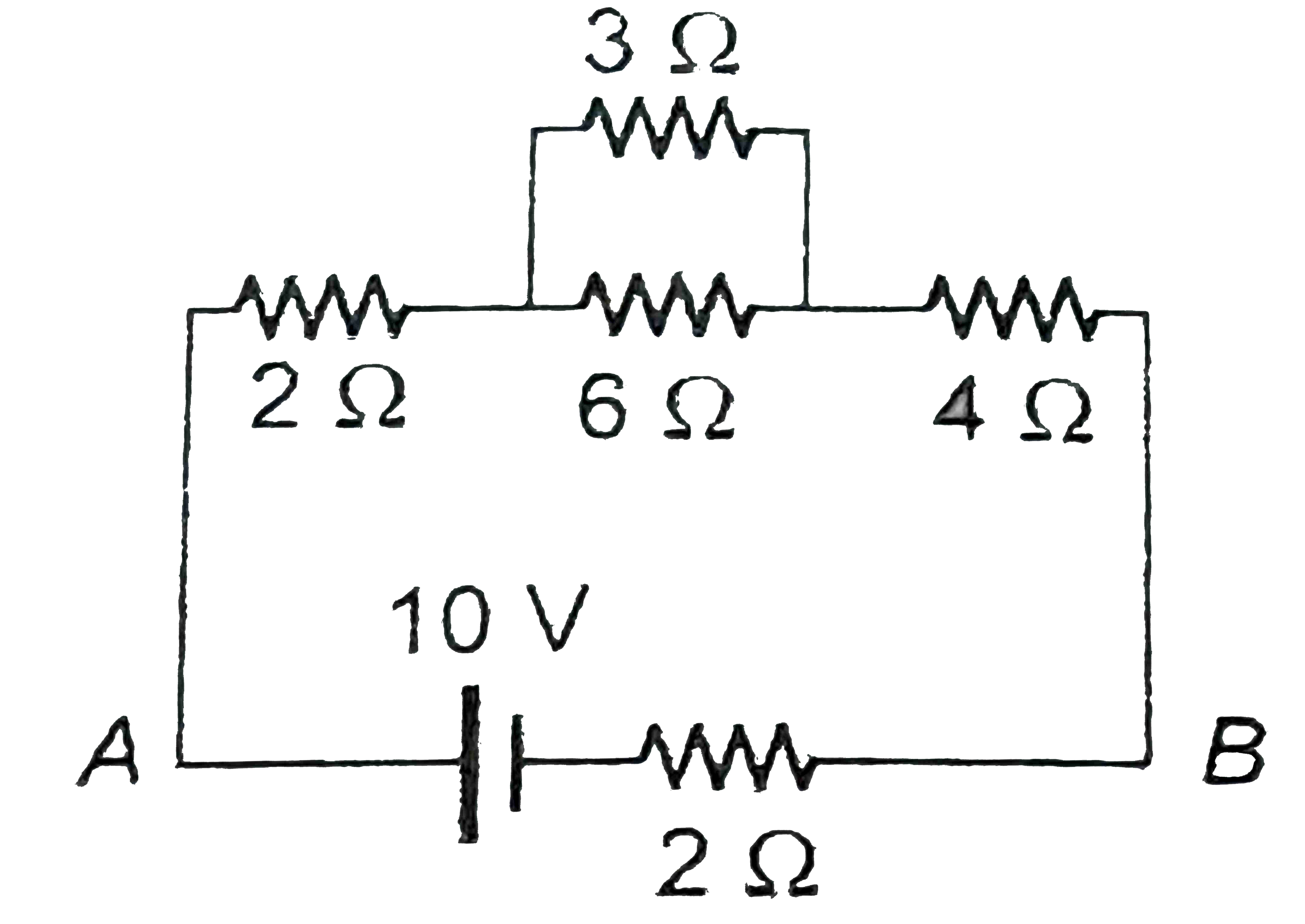
(b) Calculate the current flowing in the circuit and the potential difference across terminals of each cell.
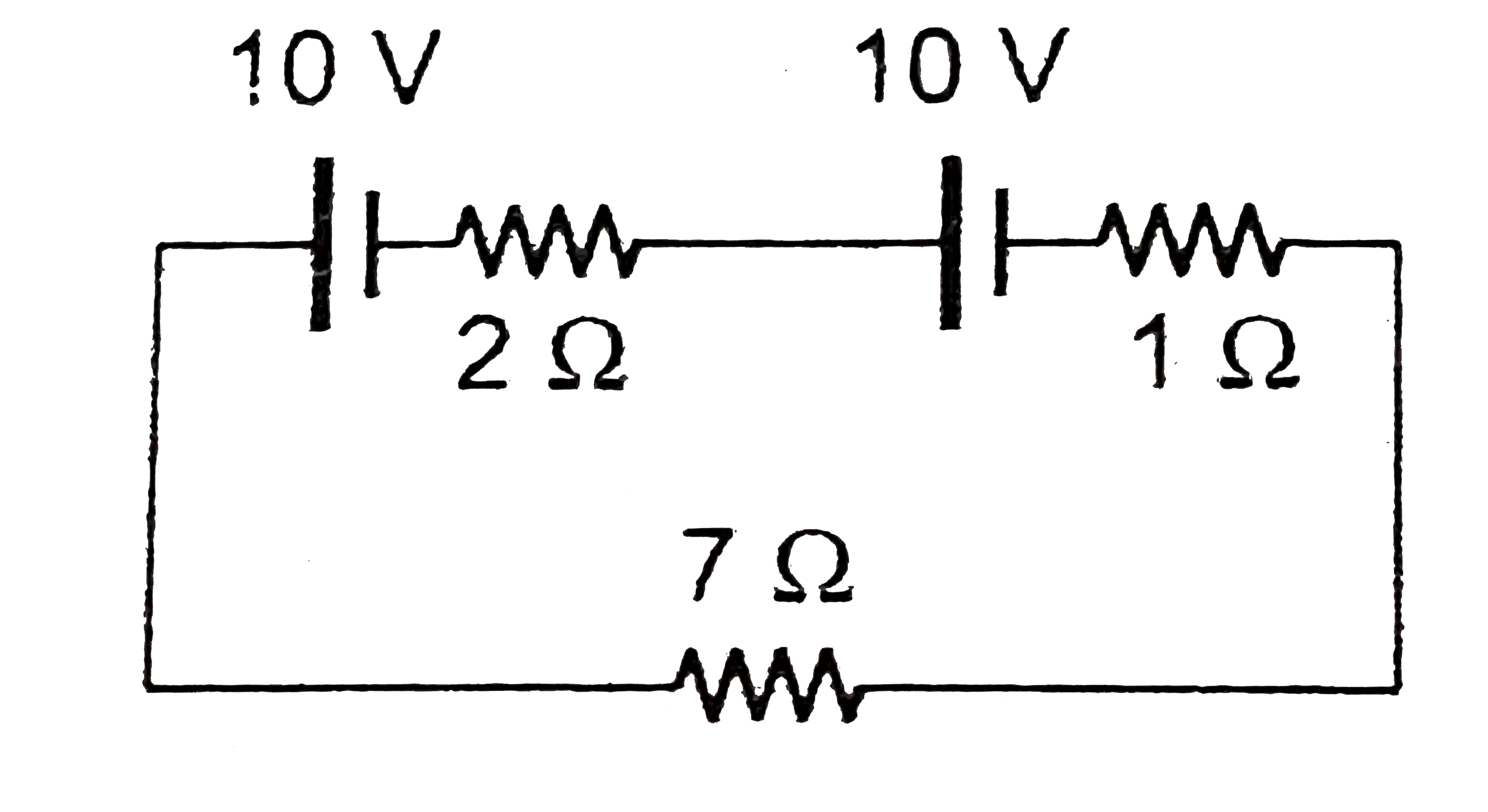
( c) Calculate the potential difference across terminals of each cell.
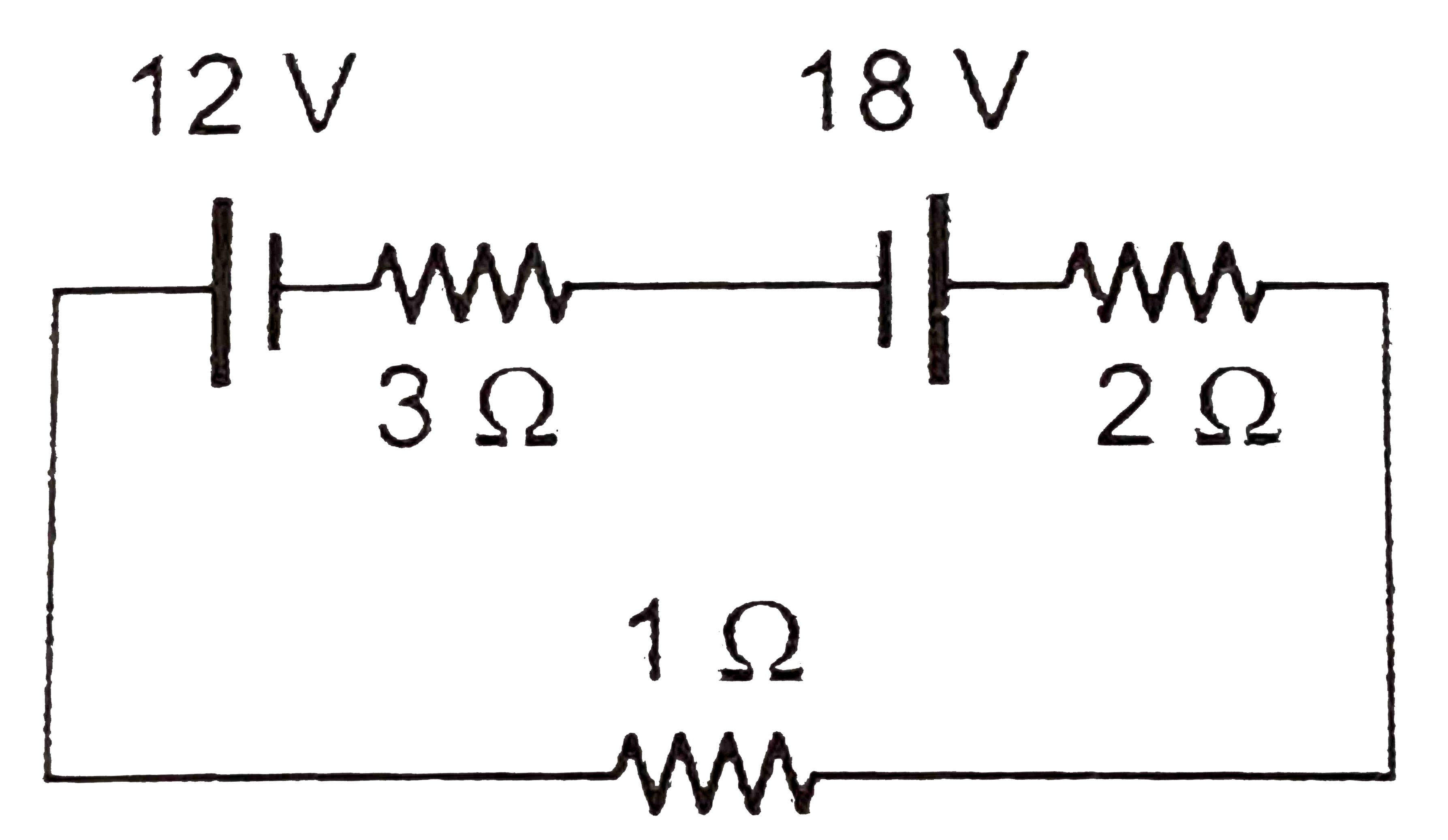
(d) Calculate the potential difference between A and B
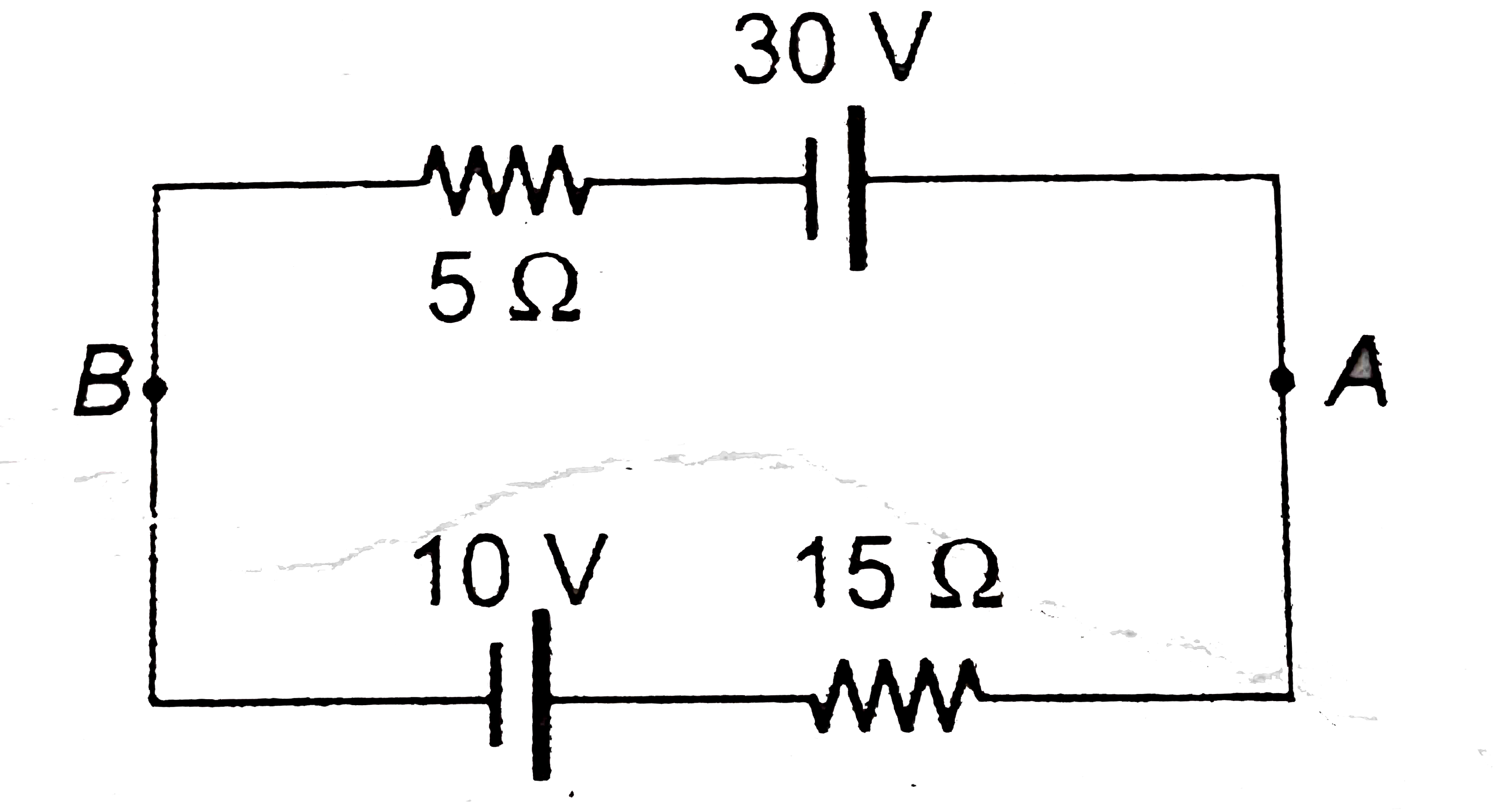
( e) Calculate the current in each resistor and terminal potential difference across each cell.
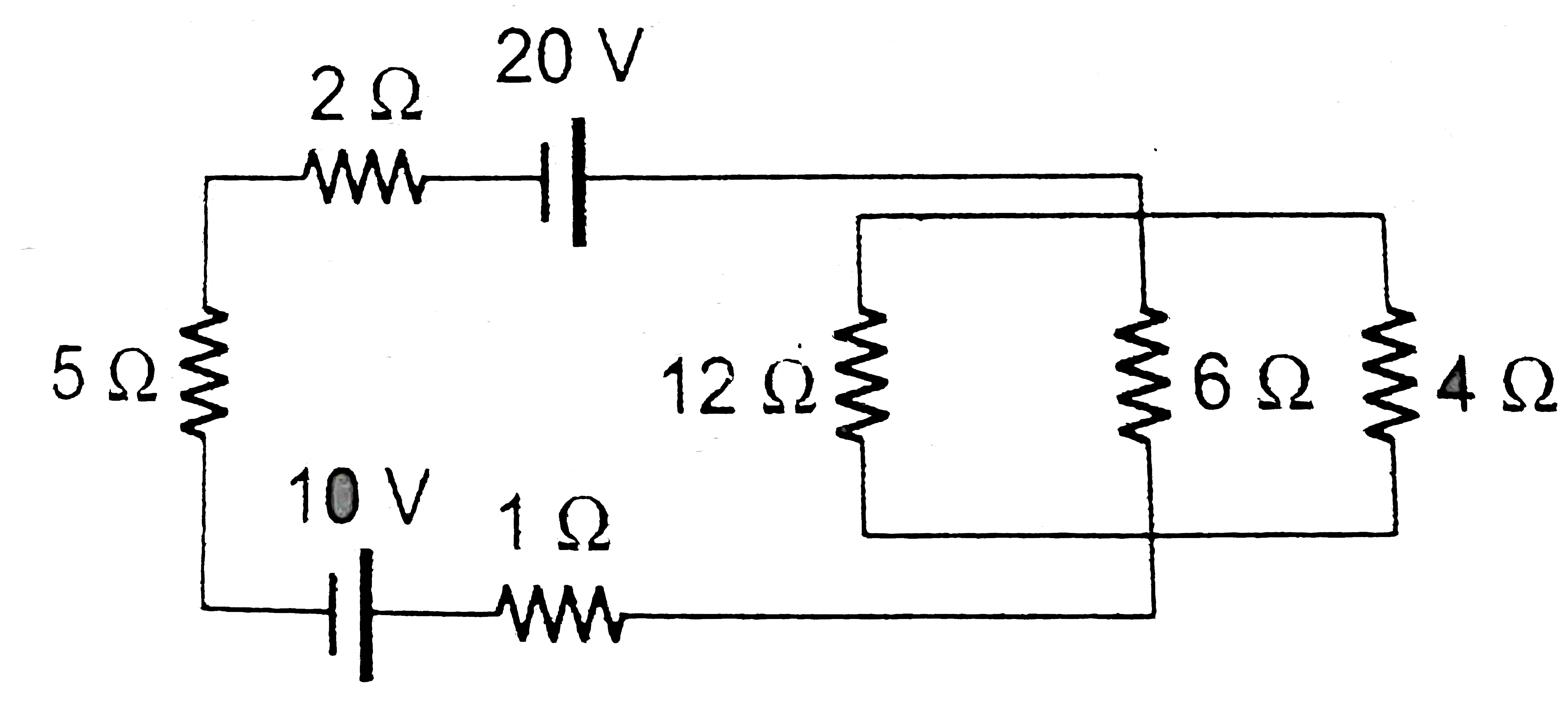
(f) Calculate potential difference across each cell.
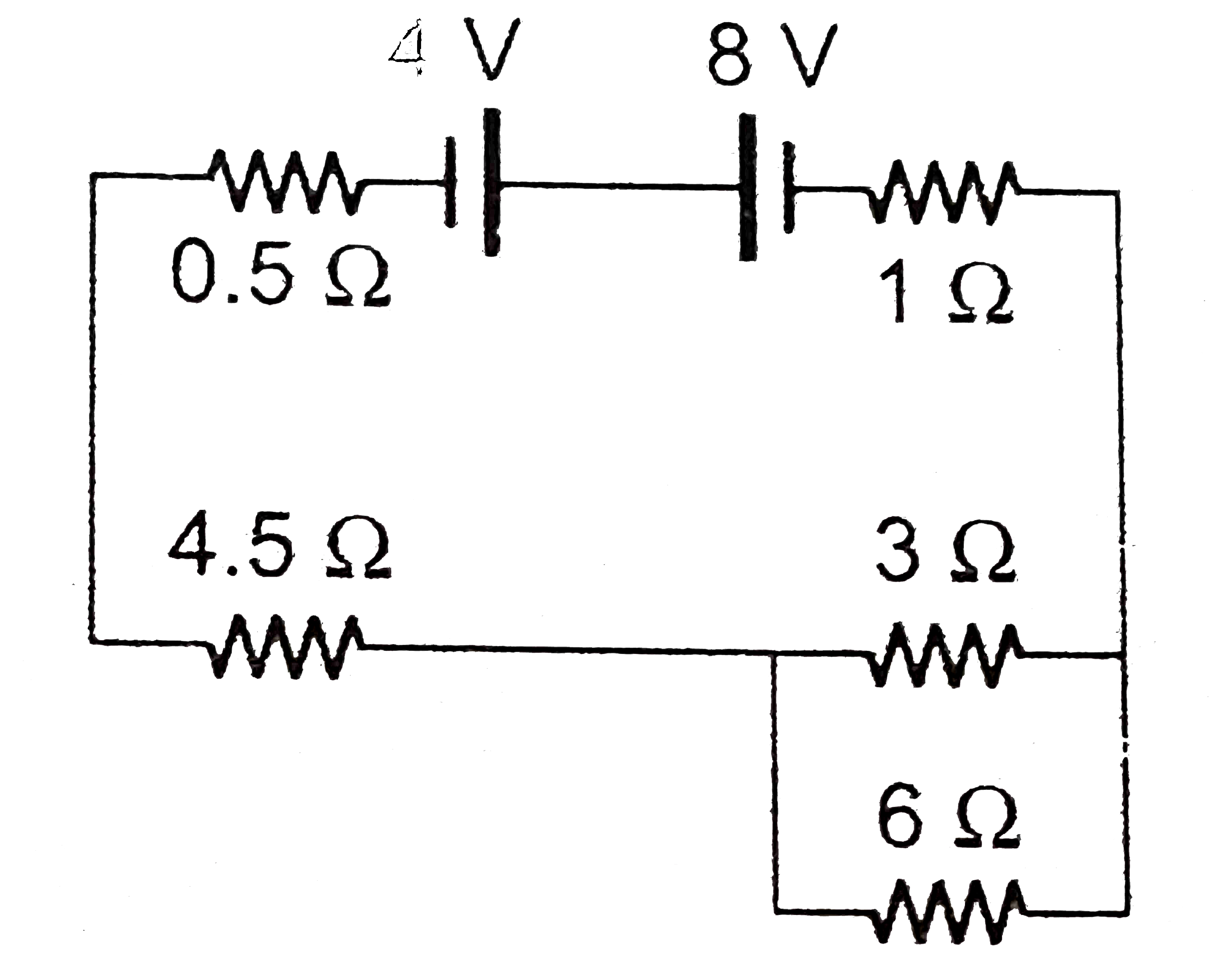
(g) A battery of 6 cells each of emf 2V and internal resistance 0.5Ω is being changed by DC mains of emf 220V by using an external resistance of 10Ω. Calculate.
(i) the charging current
(ii) the potential difference across the battery.
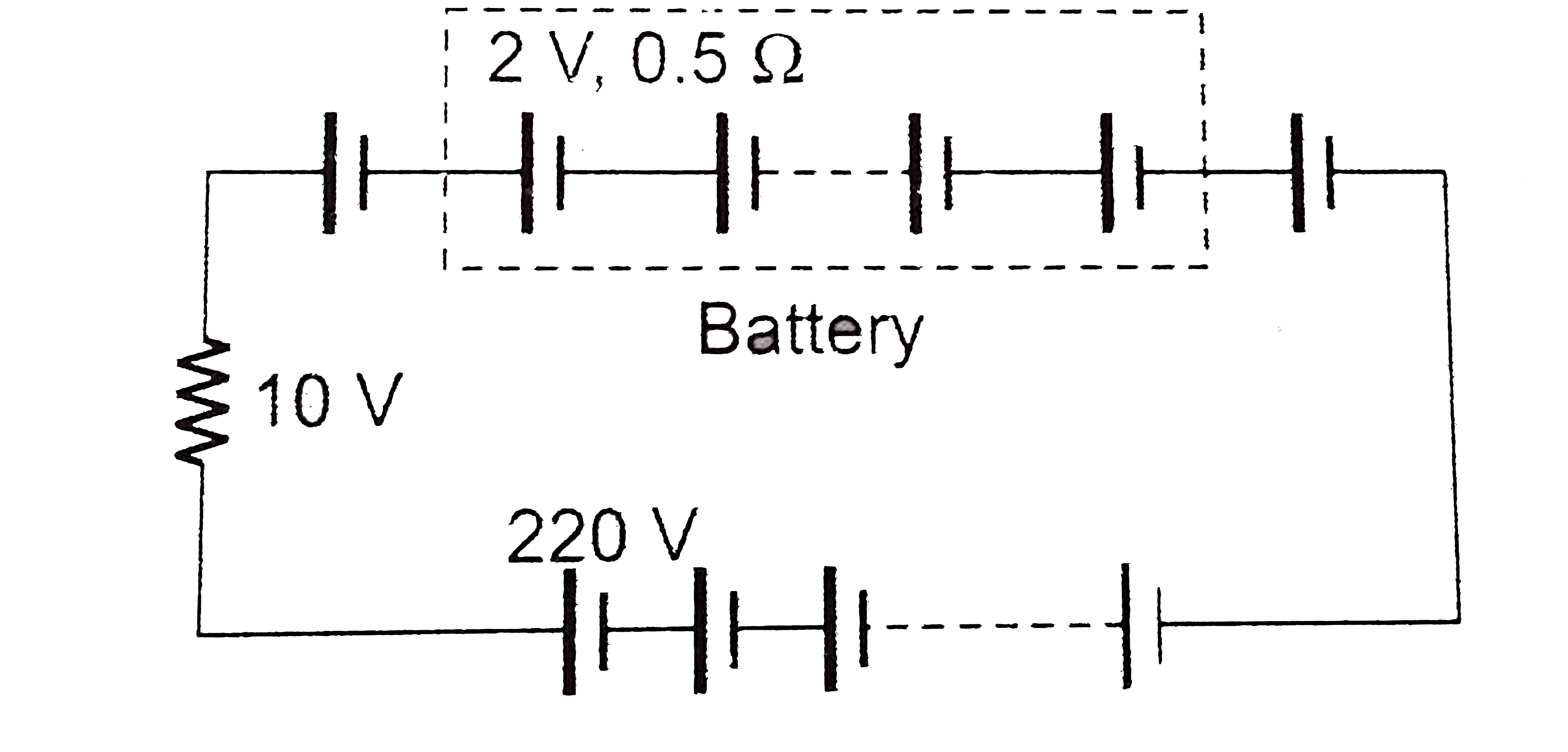 .
.
View SolutionWhat all changes occur when shoot apical meristem converts into floral meristem?
View SolutionPick up the correct statement :
(a) Mitosis occurs in somatic cells and meiosis in germ cells
(b) DNA replicates once in mitosis and twice in meiosis
(c)Mitosis and meiosis occur both in sexually and asexually reproducing organisms.
View SolutionRead the following statement regarding meristematic sale and select the CORRECT ones
(i) shoot apical meristem occupies the distant most region of the stem axis.
(ii) The meristem which occurs between mature tissues is known as intercalary meristem.
(iii) Both apical meristems and intercalary meristems are secondary meristems.
View Solution
